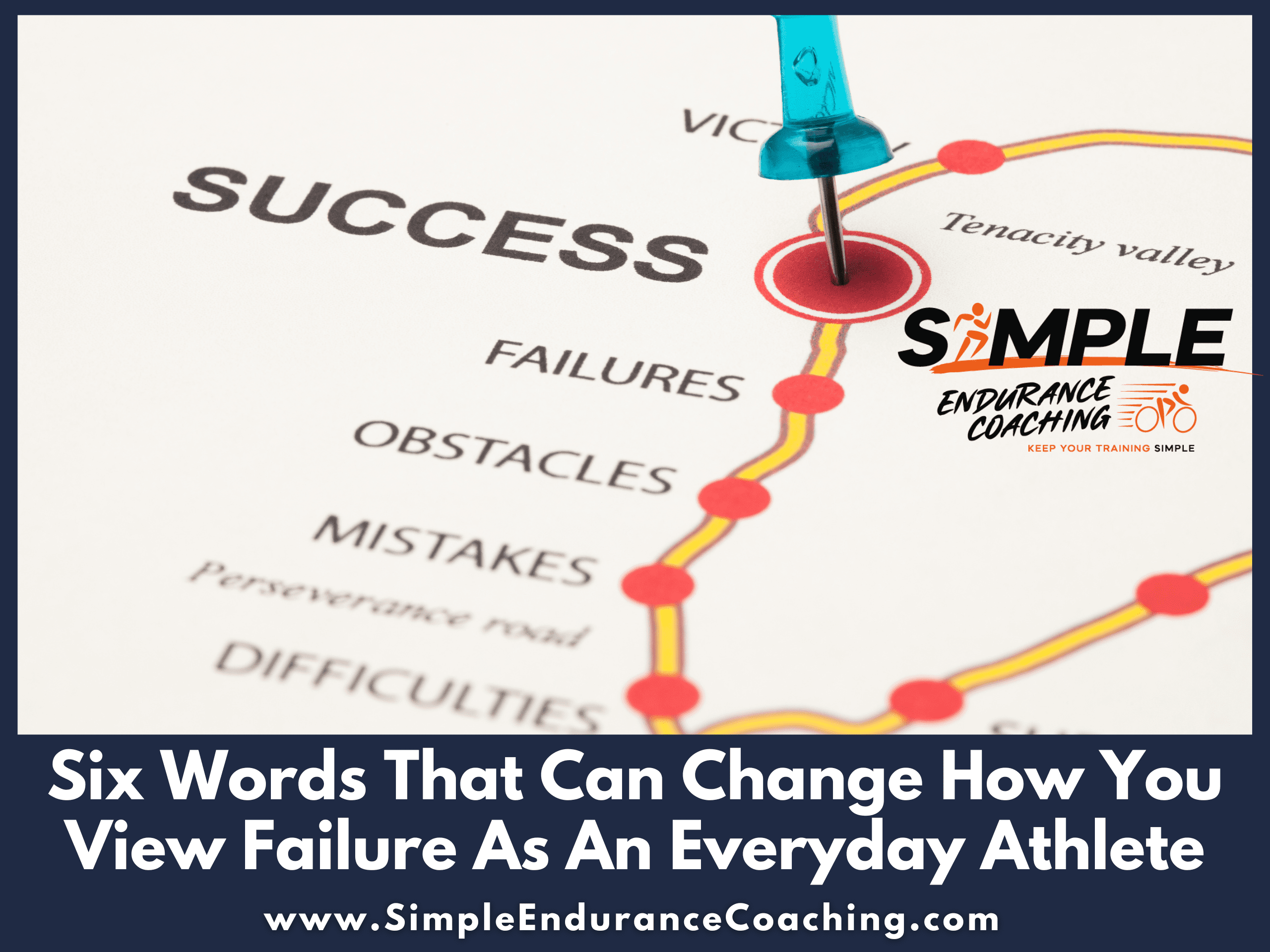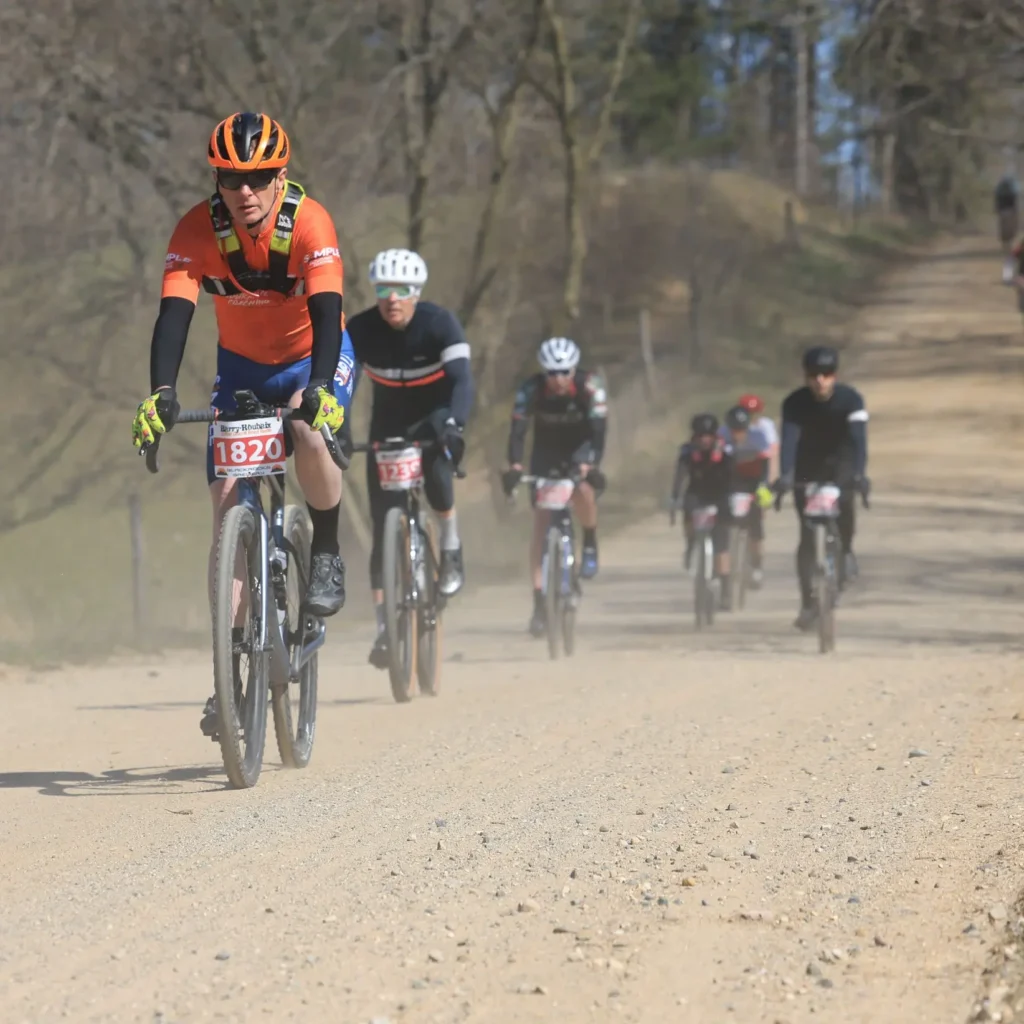We’ve all been there at one point or another: Feeling like we failed when a race or event didn’t go as planned, hoped for, or expected.
Usually this feeling, at least for me, is a very negative emotion that derails all enjoyment of the event.
But what if failure was an opportunity?
It’s not the failure that defines us, but how we respond to it.
In this article, we’ll explore how everyday endurance athletes can harness the power of failure as a catalyst for growth and improvement.
Here are the six words that can help us redefine how we view failure.

Resilience: Showing up
There’s a truism: fall six times, get up seven, or something to that effect.
That’s resilience.
Resilience is the cornerstone of success in endurance sports.
It’s the ability to bounce back from setbacks, adapt to challenges, and keep pushing forward.
Think of resilience as a muscle that can be strengthened over time.
When faced with failure, instead of viewing it as defeat, see it as an opportunity to build resilience.
Reflect on past challenges you’ve overcome and draw strength from them.
Resilience is about showing up every day for your training, even when you’d rather be taking a nap!
Adaptation: Learning to thrive with change
Endurance sports are inherently unpredictable.
Conditions can change, strategies may need adjustment, and unexpected obstacles can arise.
To thrive in this dynamic environment, athletes must embrace adaptation.
When failure occurs, analyze what went wrong and be willing to adjust your approach.
For example, during my long career as a cyclocross racer, in my warmup routine, I usually listened to angry, metal music to fire me up.
But it also would spark some negative emotions.
So I adapted and found that happier, bouncy music gave me a better mindset for the racing.
And even your challenging interval training can require adapting.
Be open to going harder, or even taking the day off.
Growth Mindset: Challenges can become opportunities
Growth mindset was a tool I used daily as a middle school English teacher, especially with the children who struggled the most.
The idea is that you learn to change your thinking about the task ahead: Instead of thinking that I’ll never be able to overcome the negative thinking, I realized every challenge could be an opportunity for learning something.
A growth mindset is the belief that intelligence and abilities can be developed through dedication and hard work.
In the world of endurance sports, adopting a growth mindset is essential for navigating the ups and downs of training and competition.
Instead of viewing failure as a reflection of your capabilities, see it as a chance to learn and grow.
Ask yourself, “What can I take away from this experience? How can I use it to become a better athlete?”
Persistence: Persevering through adversity
If there’s anything I’ve been good at over my cycling career as a racer, it’s persistence.
I show up and still train and race after 30-some years of competition.
Maybe it’s “dumb”, but I still find enjoyment in challenging myself through tough events, like gravel racing and cyclocross.
Persistence is the fuel that drives endurance athletes forward, even in the face of adversity.
If there’s one thing I continually tell my athletes, it’s that consistency is the most important part of training.
And persistence leads to consistency.
When setbacks occur, it’s easy to feel discouraged or tempted to throw in the towel.
Persistence is a decision to stay on track, one day, one training session, one workout at a time.
Today’s workout might have gone badly, but show up again tomorrow and do it again.
Feedback: Learning from experience
One of the most challenging tasks as a teacher or coach is providing honest feedback in ways a student or athlete will accept it.
This is one of the top reasons for having a coach: providing feedback that will help you improve in the future.
For example, most of my new athletes struggle with the concept of riding or running slowly enough to stay in zone 2!
I’ve had to find a lot of new ways to encourage them to slow down and keep their heart rate low!
Seeking feedback allows athletes to gain valuable insights into their performance.
When faced with failure, don’t shy away from feedback-embrace it.
Be open to constructive criticism, and use it as a springboard for growth.
By actively seeking feedback and incorporating it into your training and racing, you’ll accelerate your progress and become a stronger, more resilient athlete.
Reflection: Self-assessment
Getting honest feedback from others is important.
So too is honest self-reflection.
Take a moment to write down (I ask my athletes to write detailed notes in Training Peaks or Athletica workout files) how the event went.
Self-reflection is the process of looking inward, analyzing past experiences, and identifying areas for improvement.
When failure occurs, take time to reflect on what happened.
What factors contributed to the outcome?
What could you have done differently?
By engaging in meaningful self-assessment, you’ll gain valuable insights that can inform your future actions and help you avoid making the same mistakes twice.
Showing up is the path to success
It sounds so simple: Change your attitude about failure.
But in some ways, it is simple.
Failure happens, every day, every workout, even if we win a race, we make mistakes.
What matters is the decisions we make when we face failure.
How do we respond?
Before a workout, show up with an attitude that you can learn something.
During a workout, dig in and adapt to change.
After the workout, seek feedback and reflect on what can you improve.
With the right mindset and approach, failure can become your greatest teacher and your path to success.
Three things to know about using failure as an opportunity
- Choose the mindset that failure is a learning opportunity.
- Be resilient in adapting to changing circumstances during training or racing.
- Seek feedback and reflect on how the workout went to grow.
Need more?
Unlock the secrets to mastering gravel racing with our FREE Guide to Gravel Racing! Get yours here.
BOOK A CALL so we can discuss your goals, answer questions, and talk about making your endurance training more effective, fun, and Simple.
Paul Warloski is a:
- USA Cycling Level 1 Advanced Certified Coach
- RRCA Running Coach
- Training Peaks Level 2 Coach
- RYT-200 Yoga Instructor
- Certified Personal Trainer
- Certified Nutrition Advisor




